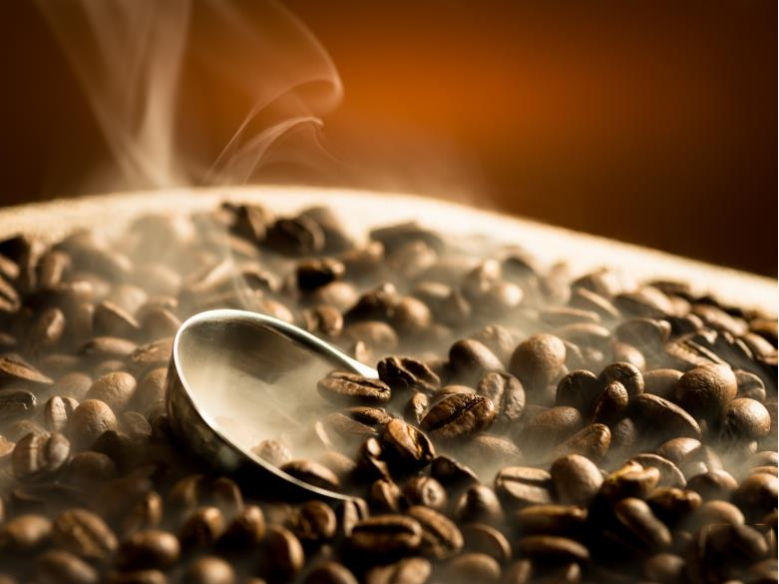How do beans/waking beans affect coffee flavor?

Professional coffee knowledge exchange More coffee bean information Please pay attention to coffee workshop (Weixin Official Accounts cafe_style)
Coffee beans are better fresh? "Green beans" vs."Fresh baked beans", cooked better or worse?
In fact, after roasting and completely cooling coffee beans, the composition of flavor compounds has been roughly fixed, and the main cause of different flavors brewed at different times is not a simple factor such as "because the taste of the beans themselves changes every day." The taste of the beans themselves will of course change gradually with time, and the key point of change is actually oxidation.(Leaving aside the qualitative reactions caused by heat and light for the moment), but for a few days after baking, because the beans themselves continue to emit carbon dioxide gas, the aromatic and flavor compounds in the beans are actually not affected by oxidation at all, so we can actually rule out the cause of "changes in the flavor compounds of the beans themselves" during this period of strong exhaust.
Since it wasn't the beans themselves that changed, what exactly made your cooking so different? In fact, the main reason is carbon dioxide gas. What can I say?
Carbon dioxide is very high in freshly roasted beans and is trapped inside the beans because of their structure, slowly escaping through tiny holes in the surface of the beans.
But at the brewing stage, the coffee beans are ground into powder particles, and then extracted with hot water at high temperature. The carbon dioxide inside the coffee begins to be released rapidly and in large quantities because of this dual factor.
The phenomenon of releasing carbon dioxide gas allows a carbon dioxide gas isolation layer to be formed between hot water and coffee powder to prevent direct contact between hot water and coffee powder. Of course, this phenomenon also causes other flavor compounds inside coffee powder to be difficult to dissolve.
The fresher the roasted coffee beans, the stronger the effect of this "gas barrier", so the brewed flavor is relatively small. On the contrary, when the carbon dioxide gas content gradually dissipates with time and temperature, the gas isolation layer becomes weaker and weaker, and the dissolution between hot water and coffee powder can proceed smoothly.
Therefore,"raising beans/waking beans" is not actually waiting for the beans to change more flavor, but waiting for the carbon dioxide gas in the beans to be released to a more moderate and more conducive to dissolution, and then starting to extract the flavor components in the coffee beans. Rather than using the word "wake up" to describe this phenomenon, it's easier to say "let the beans vent," isn't it?
。
Important Notice :
前街咖啡 FrontStreet Coffee has moved to new addredd:
FrontStreet Coffee Address: 315,Donghua East Road,GuangZhou
Tel:020 38364473
- Prev

Are your coffee beans fresh? Will coffee without beans affect the freshness of coffee beans?
Professional coffee knowledge exchange more coffee bean information please pay attention to the coffee workshop (Wechat official account cafe_style) coffee beans fresh is better? "raise beans" vs. "fresh-baked", which is better or worse? Whether you raise beans or not directly affects the freshness of coffee beans. When you buy your own baking friends, you must often hear the word "raise beans / wake up beans." to put it simply, coffee beans are roasted and cooled and bagged.
- Next

How to bake a pot of good-looking coffee with delicious coffee how to bake coffee of high quality
Professional barista communication Please follow the coffee workshop (Wechat official account cafe_style) what is double-fried coffee and single-fried coffee? The so-called double stir-fry and single stir-fry refers to the different double-fried coffee when the coffee beans are roasted: after the coffee beans are put into the pot for the first time, when the coffee beans are brown, pour out the coffee beans, cool completely and put them into the pot for the second time. Then bake to the desired.
Related
- Beginners will see the "Coffee pull flower" guide!
- What is the difference between ice blog purified milk and ordinary milk coffee?
- Why is the Philippines the largest producer of crops in Liberia?
- For coffee extraction, should the fine powder be retained?
- How does extracted espresso fill pressed powder? How much strength does it take to press the powder?
- How to make jasmine cold extract coffee? Is the jasmine + latte good?
- Will this little toy really make the coffee taste better? How does Lily Drip affect coffee extraction?
- Will the action of slapping the filter cup also affect coffee extraction?
- What's the difference between powder-to-water ratio and powder-to-liquid ratio?
- What is the Ethiopian local species? What does it have to do with Heirloom native species?

